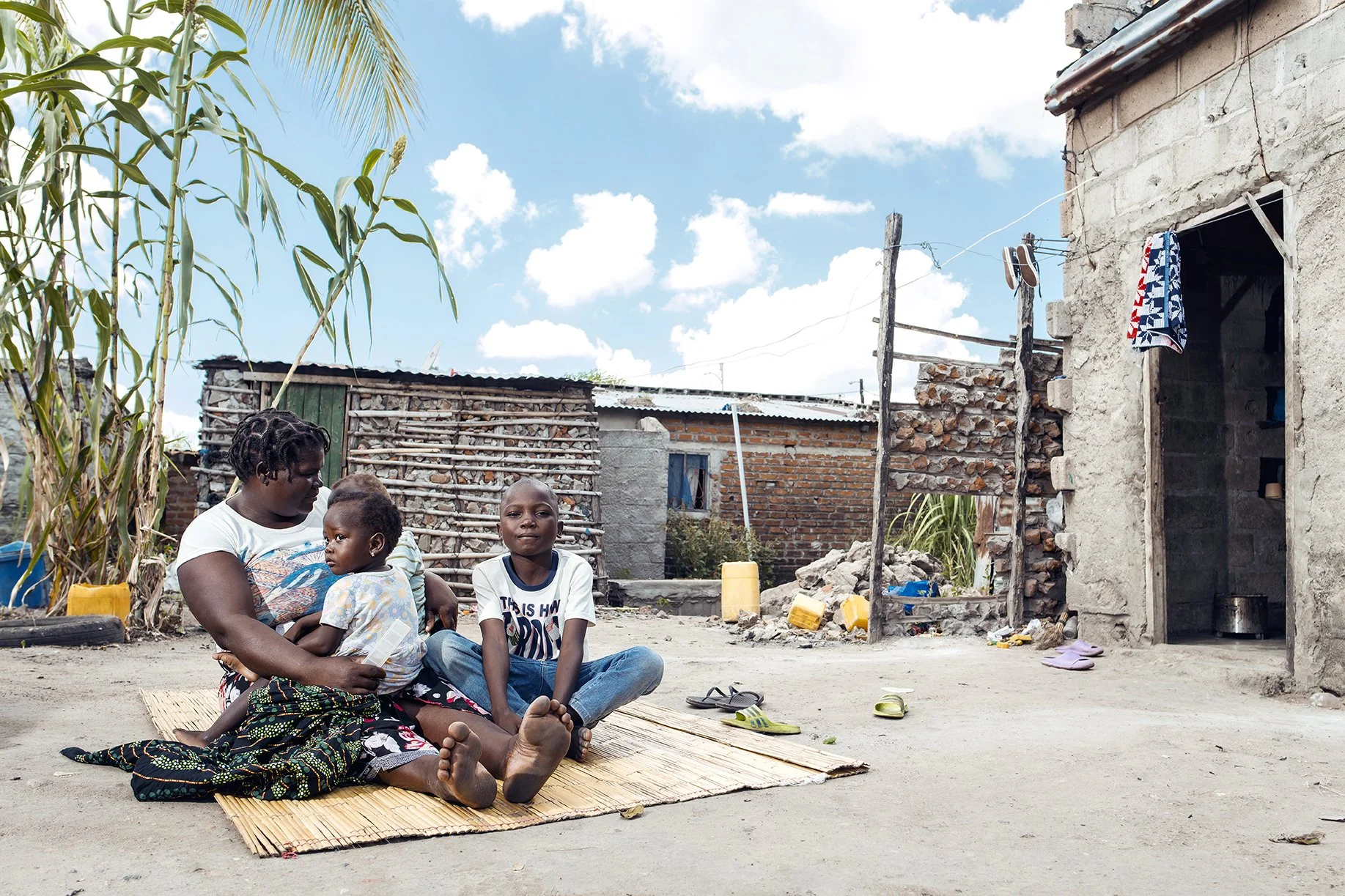Making the Case for Inclusion of Children Ahead of the United Nations High-Level Meeting on NCDs
Ten-year-old João Sebastião and his two-year-old sister, Cristina, sit with their mother outside their home after receiving treatment for sickle cell disease at the PEN-Plus clinic in Nhamatanda, Mozambique. (Photo: ©Ivan Simone Congolo/World Health Organization)
Commentary authored by NCDI Poverty Network leaders and published in August by The Lancet Child & Adolescent Health makes the case for better care for children and adolescents living with severe, chronic NCDs in settings of extreme poverty, a case that’s also reflected in the Network’s position statement ahead of the United Nations High-Level Meeting on NCDs in September.
“When global stakeholders reconvene at the UNHLM-NCD, child and adolescent health advocates must ensure that severe childhood-onset NCDIs are explicitly acknowledged, included, and measured as part of the global NCD agenda,” the commentary states. “There must be global support for building the health workforce, availing essential commodities, and generating evidence needed to optimise integrated delivery models. There must be new and robust commitments to finance integrated services for severe childhood-onset NCDIs at levels of the health system affordable and accessible to the world’s poorest children and adolescents. Finally, there must be inclusion of affected children, adolescents, and families, whose collective voices were demonstrated in the Kigali Youth Declaration on NCDs and Mental Health.”
The commentary’s lead author is Dr. Neil Gupta, senior director of policy for the Network, with coauthors including the Network’s co-chairs, Dr. Gene Bukhman and Dr. Ana Mocumbi; Dr. Raoul Bermejo, a health care specialist for UNICEF; Dr. Fouzia Shafique, associate director for health at UNICEF headquarters; and the UNICEF and NCDI Poverty Network Authorship Group.
In posting the commentary on social media, The Lancet Child & Adolescent Health noted its timeliness.
“Ahead of the 4th UNHLM on the prevention and control of NCDs and the promotion of mental health and wellbeing in September, UNICEF and the NCDI Poverty Network call for a rethink to the global approach to NCD reduction,” The Lancet post stated. “The current approach has neglected a large and diverse group of severe NCDs and injuries (NCDIs) resulting in early deaths for children and adolescents, particularly those living in extreme poverty.”
The commentary states that government funding alone is insufficient to address severe, childhood-onset NCDs fully. It also urges advocates, philanthropic organizations, and private sector partners to mobilize resources in support of integrated health systems for the world’s poorest young people.
“To achieve further declines in child and adolescent mortality, a comprehensive approach to severe childhood-onset NCDIs is needed,” the commentary states in its closing call to action. “At the upcoming UNHLM-NCD, we must ensure that commitments for action not only support, but accelerate, existing progress on child survival and close a remaining gap in avoidable childhood and adolescent mortality.”
Update: In early September, The Lancet Child & Adolescent Health posted an editorial citing the Network commentary and advocating for the inclusion of children and adolescents in the UN General Assembly agenda.

